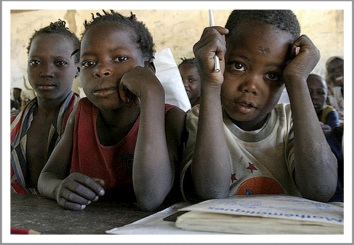
Democracy’s midwives
Not only did missionaries play a midwife role in the birth of the nation of New Zealand, as I wrote in last week’s WW; they also midwifed the rise and spread of democracy around the world, according to a persuasive 26-page article, Missionary roots of liberal democracy, published by the American Political Science Review. .
One reader suggested I bring some balance to last week’s claim, which read ‘a bit like the wonderful white man came to bless the cursed infidels with civilisation’. Colonisation was often the cause of tragedy and abuse, wasn’t it? So didn’t the WW gave a rather unnuanced perspective of the missionaries’ role?
Robert Woodberry of the National University of Singapore would say an emphatic ‘no’ to the last question when seen in a global context. He has comprehensively researched the role of missionaries in introducing and spreading those factors leading to democracy and stable civil society. Most social scientists miss the point by ignoring religion when they try to account for the rise and spread of democracy, he argues.
His study of the association of missions and democracy based on a sample of 142 nations challenges the traditional modernisation theory that liberal democracy and other social trans-formations associated with ‘modernity’ developed primarily as the result of secular rationality, economic develop-ment, urbanisation, industrialisation and the expansion of the state. Woodberry argues that these ‘causes’ had to be explained themselves, and that Western modernity is profoundly shaped by religous factors.
Catalyst
Democracy was therefore not a triumph of secularism over religion, as often claimed. What he calls CP’s (‘conversionary Protestants’ who actively tried to make converts, stressed personal conversion and emphasised lay vernacular reading) were a crucial catalyst in the development and spread of religious liberty, mass education, mass printing, newspapers, voluntary organisations, civil society, rule of law, most colonial reforms and legal protection for non-whites in the nineteenth and early twentieth centuries. Such innovations made stable, representative democracy more likely.
Beginning with Europe and North America as the regions where representative democracy first developed, Woodberry then focuses on Africa, Asia, Oceania and Latin America establishing a common pattern that CP’s consistently promoted democracy-friendly institutions. In contrast, other groups from Protestant societies usually did not, such as settlers, business people and colonial officials.
A secular view of course rejects the religious roots of democracy and, according to Woodberry, typically overemphasies its Athenian, Enlightenment and Deist roots. Yet Athenian democracy bore little resemblance to modern democracy, being unstable, limited to elite families, and representing less than one in five citizens. Besdies, Enlightenment theorists borrowed from earlier religious movements, most of them coming from Calvinist families or having a Calvinst education (Locke, Rousseau, Grotius, Franklin, Adams, Henry, Madison…) all of whom secularised ideas from Calvinist sources. Hobbes’ and Locke’s social contracts, for example, were secular versions of Puritan and Nonconformist covenants. Locke’s ideas about the equality of all people originated from the Bible, but were restated as ‘self-evident’ truths.
Civil society
Scholars claim printing and capitalism birthed the public sphere which in turn birthed democracy. Yet CP’s accelerated the development of printing and newspapers and the resulting public sphere. In China, Japan and Korea, where printing had been developed 600-800 years earlier than in Europe, it had never supplanted handwritten manuscripts, newspapers didn’t develop and literacy remained only among the elite until the CP’s arrived. They and their converts printed the first East Asian newspapers in Chinese, published the first privately-printed newspapers in Japanese and Korean, and initiated newspapers in most other non-European societies.
Similarly in education, CP’s advocated mass literacy so that all could read the Bible, thus catalysing mass education globally. Mission influence forced public funding for education in colonial India 20 years before mother England. CPs dissipated elite power by publicising colonial abuses, championing change in colonial policy, promoting social movement organisations, protecting indigenous land rights, preventing forced labour, and forcing colonial powers, including the British in New Zealand, to give equal rights to whites and nonwhites.
It won’t be easy to convince my critical reader however. He’s my son.
Till next week,
Jeff Fountain

This Post Has 0 Comments